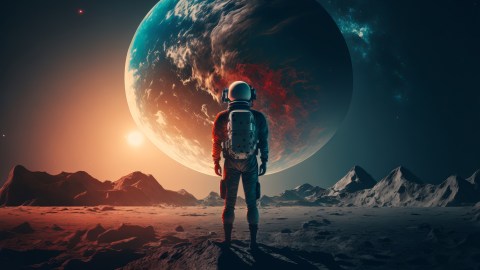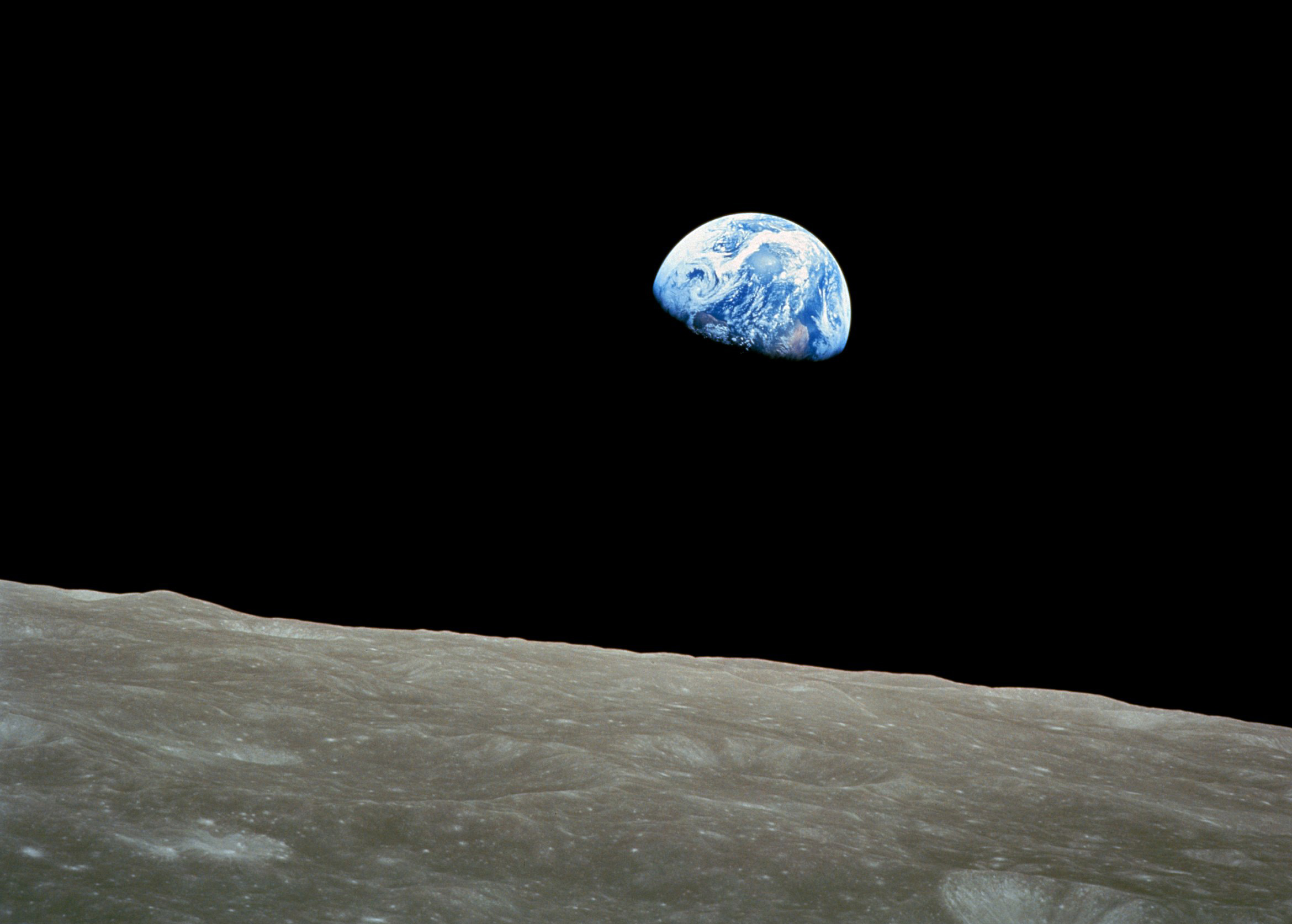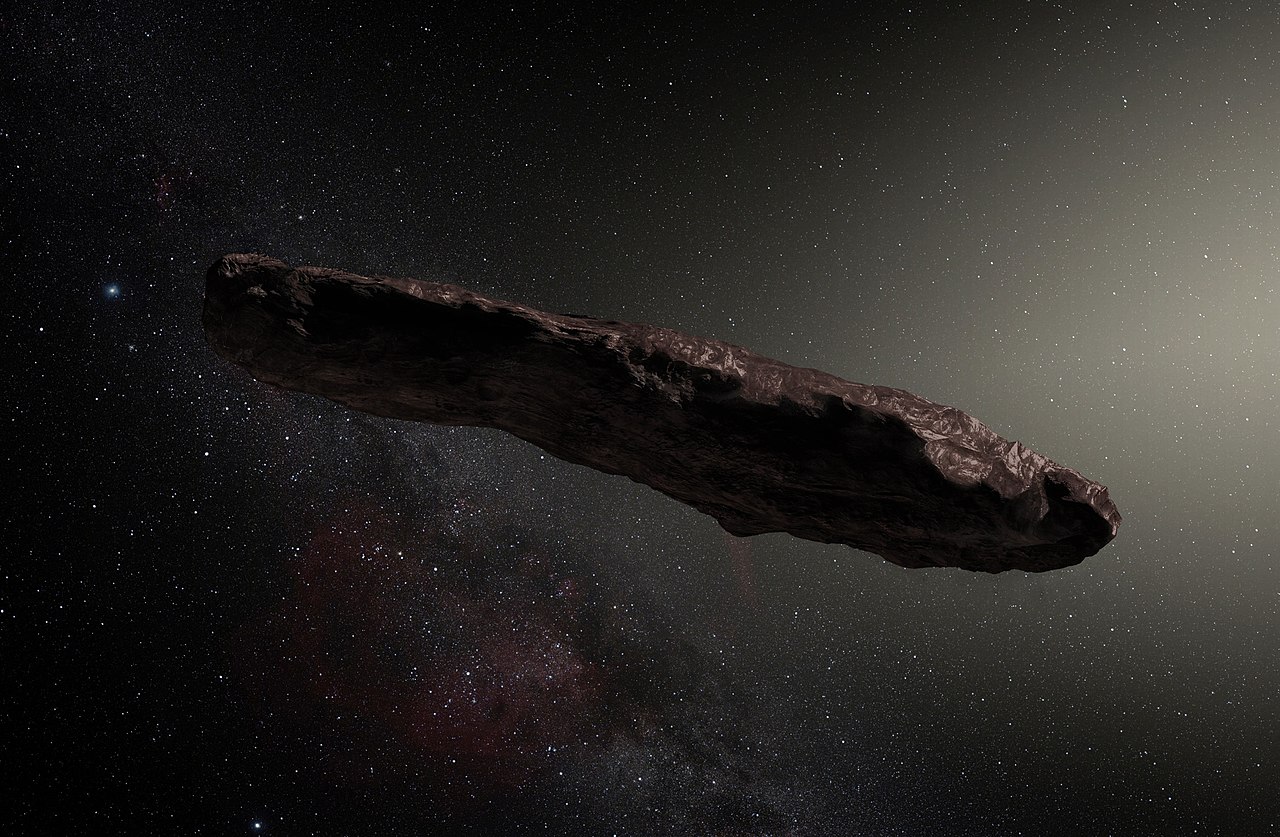Space travel will radically change human psychology and spirituality

- For all of human history, the heavens have been the realm of the gods.
- We are living in a period when humanity is living and traveling in space. If we continue on this trajectory, we will develop new myths and spiritual views.
- Space can inspire us and horrify us. Our psychology and spirituality will have to adapt.
Humans have lived on Earth for millennia, but one day that will change. The stars are calling us, and their pull is far too strong for us to ignore. We have already put our feet on the Moon; one day we will be back. Then perhaps we will head to Mars and beyond. When we do, it will change us. Leaving the pull of Earth will alter how we think and feel. It will affect our spirituality and our psyche — and perhaps even redefine humankind.
Spirituality in the sky
Throughout human history, we have associated our spirituality, myths, and religions with the sky. Constellations are peppered with sky stories, from Orion to Warepil (the eagle constellation of aboriginal Australians). The Lakota Native Americans associated the Milky Way as a path for departed souls. Jesus ascended to the heavens. The primary god of ancient Egyptians was Ra, the god of the Sun. And the entire Universe was seen inside Krishna’s mouth.
Jason Batt, a science fiction author, mythologist, and futurist, has spent a lot of time thinking about stories like this, and how our relationship with the heavens will change when we become a space-faring race. “So what happens to humanity?” Batt, who is also a co-founder of Deep Space Predictive Research Group and a Creative Manager of 100 Year Starship, pondered while speaking to Big Think. “What is going to change in us? What is going to transform?”
Even though we often associate our space travel with feats of engineering and science, there is an undeniable connection with our myth as well. We see this in how we name our rockets destined for space: Gemini, Apollo, Artemis. Going to space is big, not just for our technology, but for our spirits.
“There’s a spiritual transformation that happens to whatever group of humanity makes the leap,” Batt said. “We fundamentally alter and change ourselves when we transition to a new stage in a new environment.”
Whenever we transition to a different place, we begin to form new ideas. Stories grow from these ideas, and they become legends and myths. We see patterns. We try to make sense of it all. In a way, isn’t this what spirituality is: trying to connect with and understand something that is much, much larger than ourselves? We’ve set foot on the Moon but we haven’t been back for 50 years. When we return to the stars, how will it change us? It’s hard to say. But we can make some guesses.
Cosmic horror
We humans used to think the Earth was the center of the Universe. Then it was the Sun. But as we look deeper into space, we realize that we are not at the center of the Universe. Though our star is unique in many ways, our corner of the galaxy certainly is not.
“Far out in the uncharted backwaters of the unfashionable end of the western spiral arm of the Galaxy lies a small unregarded yellow sun,” writes Douglas Adams in Hitchhiker’s Guide to the Galaxy. “Orbiting this at a distance of roughly ninety-two million miles is an utterly insignificant little blue green planet whose ape-descended life forms are so amazingly primitive that they still think digital watches are a pretty neat idea.”
This is the beginning of a concept dubbed “cosmic horror.” The Universe is big. Really big. Bigger than our tiny minds can truly comprehend. Compare this to how we used to see the stars.
“Earth is in the center and the stars are canopy above us,” Batt said. “But they are stars meant for our enjoyment… we learned from them, we discovered them. Now we’ve managed to peak above that. And we’ve ventured into that space, and all of a sudden we realize the Universe is way larger, and we are way smaller than we could have ever been. And there’s something very hauntingly scary when we recognize our potential insignificance in the face of all that.”
Will our societies matter when the Milky Way inevitably collides with the Andromeda Galaxy? Will our consciousnesses be remembered once our Sun expands and engulfs our Earth?
When we go into space, we will have to deal with this, too. The Universe is a harsh place, from the vacuum of space to cosmic radiation to lack of gravity. Away from the warm home of our Earth, we would be more isolated than ever before.
Imagine being an astronaut on an interstellar starship heading for the next planetary system. “[Imagine when] it actually gets so far out there that both the Sun and the stars [we are] headed to are dots,” Batt said. “Do we psychologically possess the tools to be able to deal with that sense of isolation? You don’t get to swim back home.”
The overview effect
But going to space is not all bad. There’s another “spiritual experience” we can have when we voyage into space. It’s an actual change in perspective called the overview effect, a name coined by the space philosopher Frank White.
Many astronauts have already experienced the overview effect: a profound spiritual experience that astronauts report feeling when they look out on Earth from space. Looking at our planet, boundaries between nations vanish, and astronauts see how astonishingly thin the atmosphere that we rely on really is. They see the incredible fragility of our planet.
By interviewing several astronauts who went into space, Deana Weibel, a professor in the anthropology department and religious studies program at Grand Valley State University, found that they had many different experiences. “One general theme among many, however, has been a sense of how the atmosphere is ‘wafer thin,’ that the Earth needs protection, that it is a vehicle in space that provides us with life support,” Weibel told Big Think.
Edgar Mitchell, an astronaut and the sixth person to land on the Moon, put it like this:
“There was a startling recognition that the nature of the Universe was not as I had been taught… I not only saw the connectedness, I felt it… I was overwhelmed with the sensation of physically and mentally extending out into the cosmos. I realized that this was a biological response of my brain attempting to reorganize and give meaning to information about the wonderful and awesome processes that I was privileged to view.”

The Overview Institute is a group devoted to providing people with this experience, even without going to space. They believe that the effect of seeing our entire planet from space is so profound that it can affect everything — from how our minds work to dealing with major issues like world peace and climate change.
Looking out on Earth from space can reframe our minds. No longer are we inhabitants of a certain village, city, or country. Instead, we are members of the Earth, along with every other person — regardless of race, nationality, and religion — and along with every panda, beetle, and bird. We are all on this “cosmic spaceship” together.
Weibel told Big Think of another spiritual effect that astronauts have when looking in the opposite direction. She coined this term the “ultraview effect,” which is when astronauts look out at the Universe from space after their eyes become dark-adjusted. They often report a Universe so packed with stars it looks just like a white wall, with no space in between the stars. It has inspired some of them to believe there is undeniably life among the stars.
Redefining our stories
As we continue to make our way up into the heavens, it will change us and our spirituality. “We are just beginning to put our toes in the water,” Batt said. “It’s more than just propulsion. It’s more than just exploration. It’s more than just satellites. It’s humanity having to recognize that we’re entering the abode of the gods.”
Weibel explained that many of our religious ideas are tied to the Earth, or portions of the Earth:
“The Ganges River is sacred in Hinduism and would be left behind [if we left Earth]. The Jewish and Muslim calendars are based on the movement of the Moon around the Earth (and certain Christian holidays, like Easter, are as well). If the Moon’s orbit around the Earth becomes something distant and only observable through high-powered telescopes, will that continue to influence space settlers’ religious activities? Will the Sun of our solar system, Sol, become a sacred star? Or will Muslim settlers on Mars or one of Jupiter’s moons pray in the direction of Earth?”
If one day, you set foot on the Moon, could you ever look at it as just an orb in the sky again? Or would you see it for what it is: an entire world of its own, with canyons, mountains, dust, and somewhere to stand?
Imagine the far future, when people are not only living on the International Space Station but also on the Moon, Mars, or perhaps an intergenerational starship exploring the galaxy. So many of our stories, religions, and spiritualities have the heavens and the earth (as in the soil under our feet) built in. How will all that change when there are people living apart from these concepts?
Certainly, future generations will think differently about space than we do now. The Moon may not just be a light in the night sky, but home. What will they think of the Earth? Will it be like Eden, the place we originated, or a primitive type of hell? Will it be a light in the nighttime sky or just a pinprick that is barely visible?





